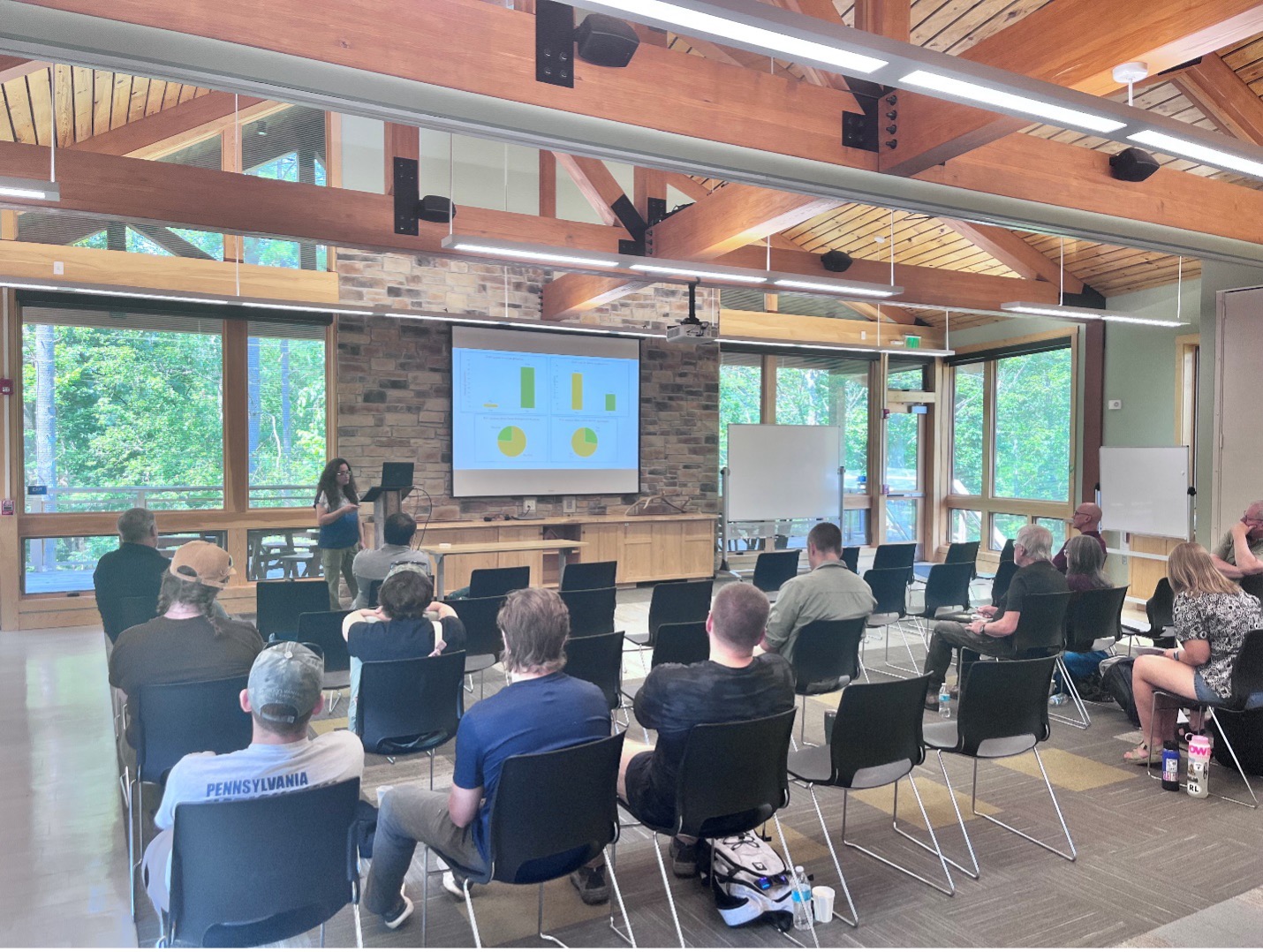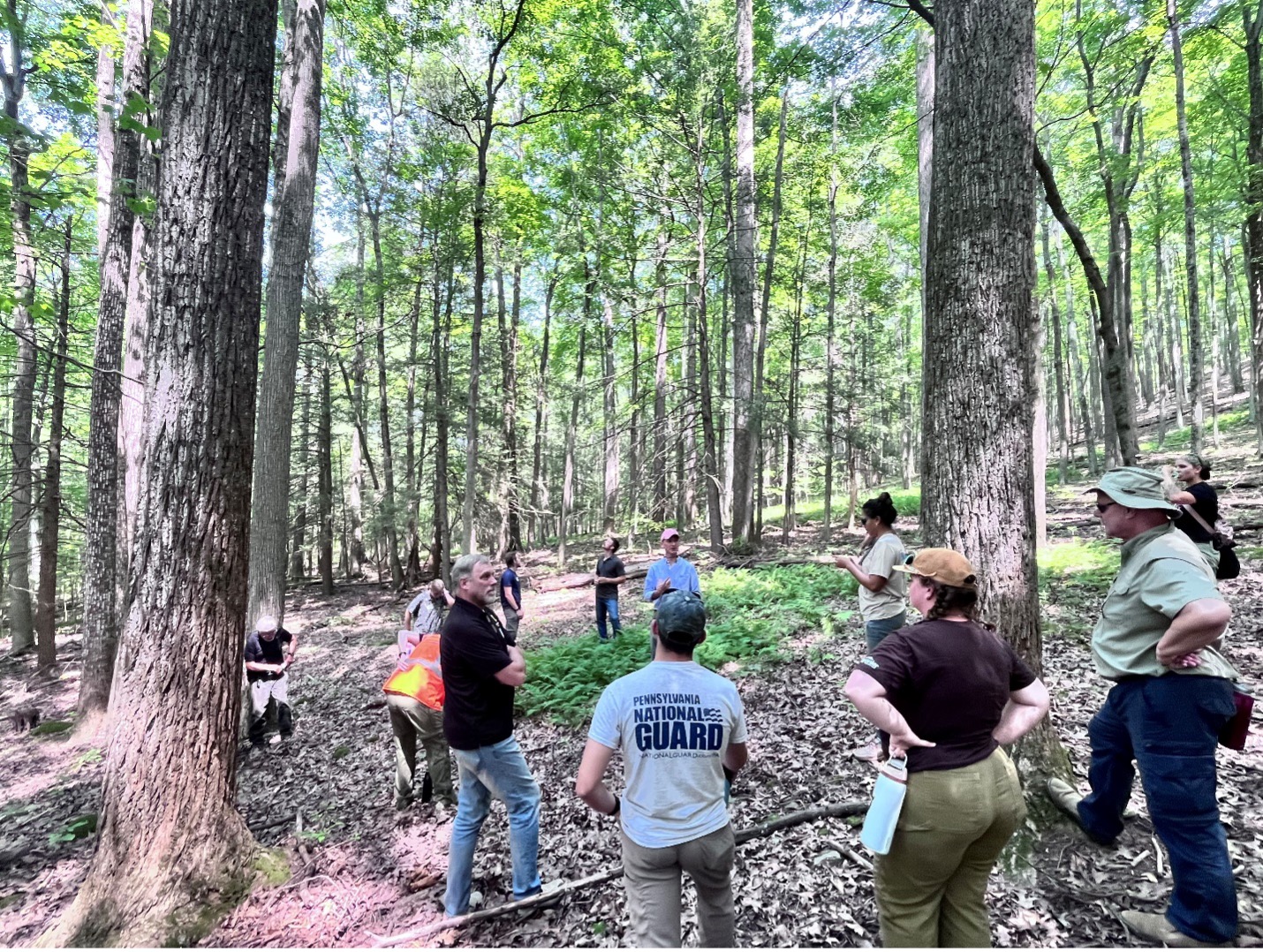FCCP organizes forest carbon market workshop in State College, PA
FCCP organized a forest carbon market workshop in State College, PA, tailored to increase understanding and remove access barriers for landowners and educators to engage with the carbon economy.

State College, PA – Continuing our forest carbon market decision-support workshop series, FCCP director Dr. Chad Papa and FCCP affiliated faculty member Dr. Raju Pokharel co-organized a workshop at the Shaver’s Creek Environmental Center outside of State College, PA, with the Forest Owner Carbon and Climate Education (FOCCE) Program and Penn State Extension.
This workshop brought together landowners, educators, students, scientists, and practitioners to learn more about climate-informed  management and how carbon markets and forest carbon offsets can provide essential financing for managing forests as natural climate solutions. The workshop began with a brief introductory presentation by Dr. Papa and then a demonstration and training of an online cost-benefit tool developed by Dr. Pokharel. This tool is designed to help forest landowners and practitioners make more informed decisions related to the financial feasibility of enrolling land into an improved forest management carbon market program that can provide landowners with income through the sale of carbon credits.
management and how carbon markets and forest carbon offsets can provide essential financing for managing forests as natural climate solutions. The workshop began with a brief introductory presentation by Dr. Papa and then a demonstration and training of an online cost-benefit tool developed by Dr. Pokharel. This tool is designed to help forest landowners and practitioners make more informed decisions related to the financial feasibility of enrolling land into an improved forest management carbon market program that can provide landowners with income through the sale of carbon credits.
PhD candidate Kripa Neupane presented on landowner behavior related to willingness to accept carbon payment programs in Pennsylvania and Virginia, a topic of interest because enrollment in programs generally remains low. Post-doctoral researcher Dr. Marga Fernandez presented on advancing the co-benefits of climate-smart forestry through research and extension in Pennsylvania. Dr. Fernandez also highlighted other long-term studies to understand carbon storage in managed forests.
The day concluded with a field tour of the 7,000 acre Stone Valley Forest which is a forest and recreation area owned and managed by Penn State University with the goal to provide opportunities for exemplary natural resources management research, education, and demonstration, to manage the forest for multiple benefits including timber, wildlife, water, recreation, aesthetics, cultural resources, and unique natural resources, and to serve as a model for other forest landowners by applying up-to-date, science-based biologically sound and financial feasible natural resource management practices.
Participants were able to visit sites in Stone Valley Forest and learn in the field about current carbon management practices. The  various field sites provided insights into how past management and future trajectories of forests could impact the function, composition, and structure, relating these concepts back to forest carbon markets and offsets.
various field sites provided insights into how past management and future trajectories of forests could impact the function, composition, and structure, relating these concepts back to forest carbon markets and offsets.
This workshop is a part of the larger “Building forest carbon market decision support” project that is funded in part by a U.S. Department of Agriculture National Institute of Food and Agriculture Renewable Resources Extension Act Capacity Grant in collaboration with the USDA Forest Service, the Wisconsin Department of Natural Resources, the Michigan Department of Natural Resources, Michigan State University Cooperative Extension and the Forest Owner Carbon and Climate Education (FOCCE) program at Penn State University.



 Print
Print Email
Email